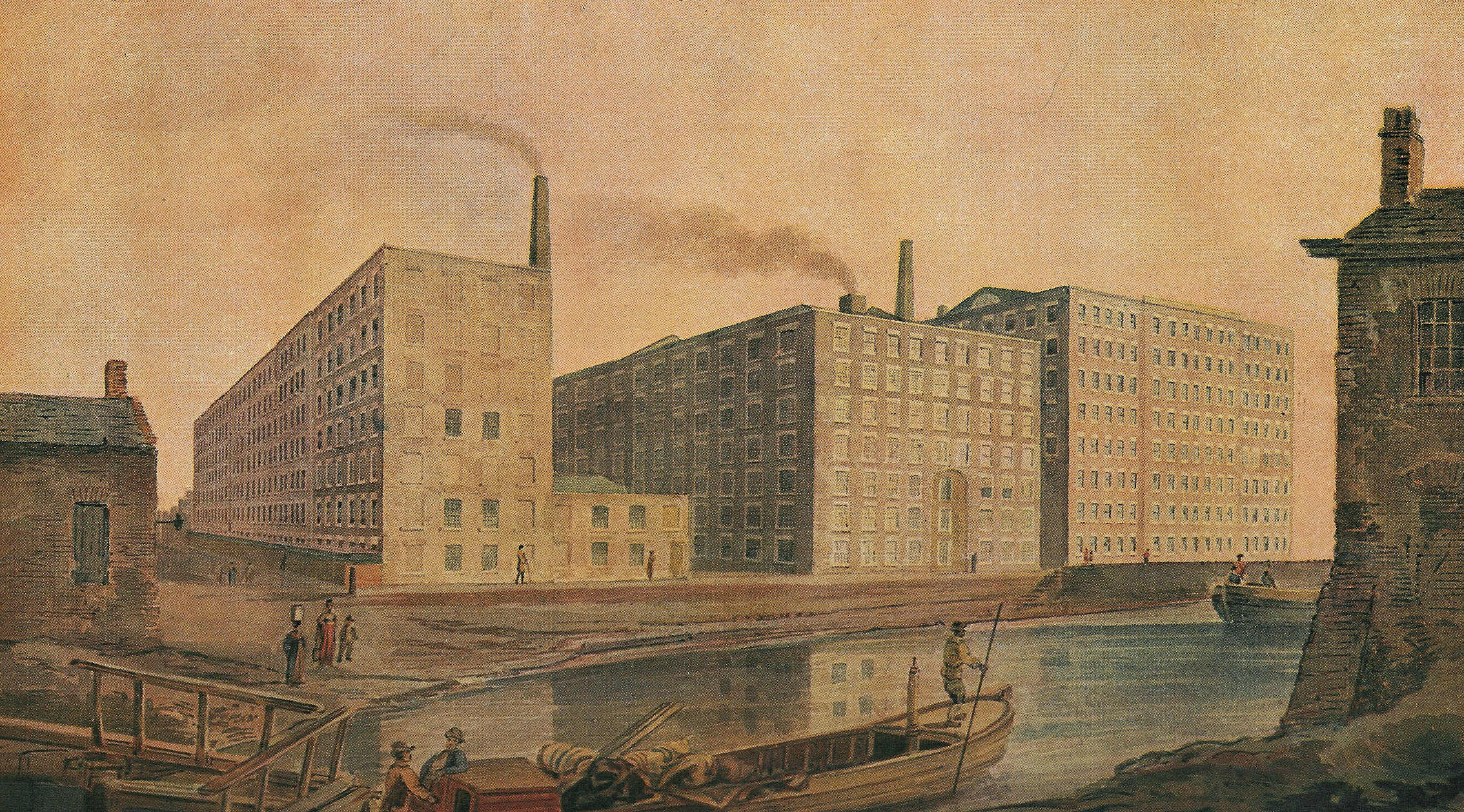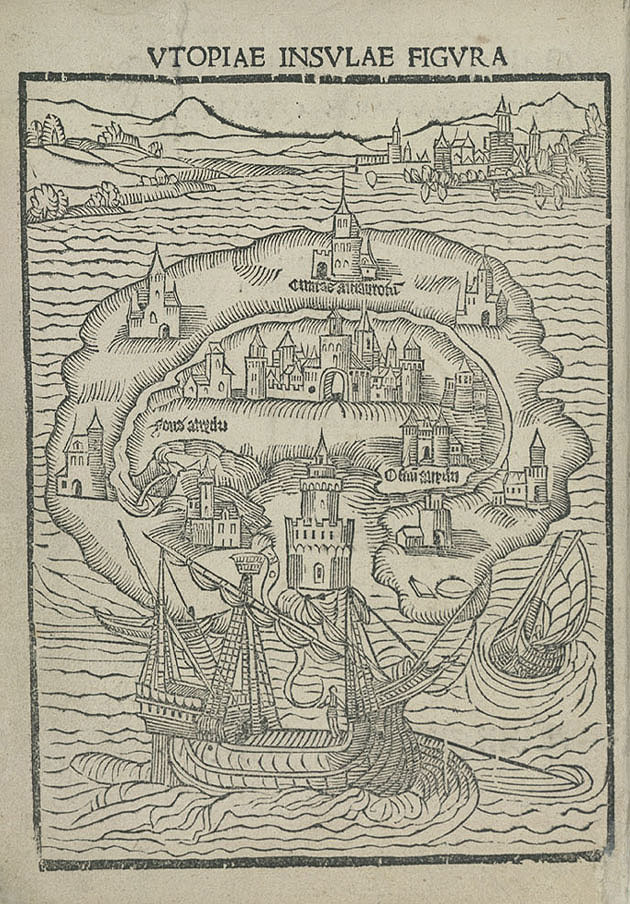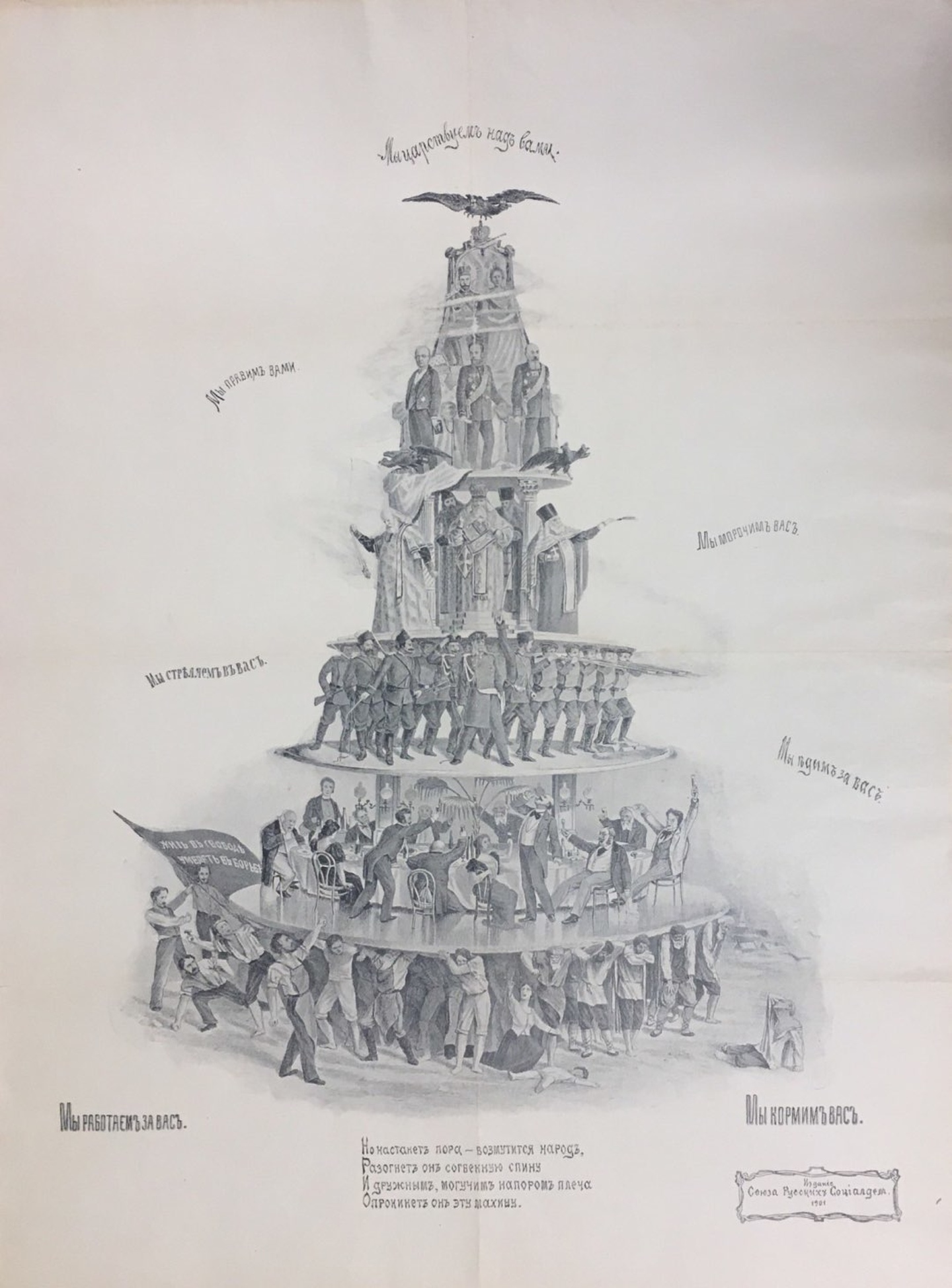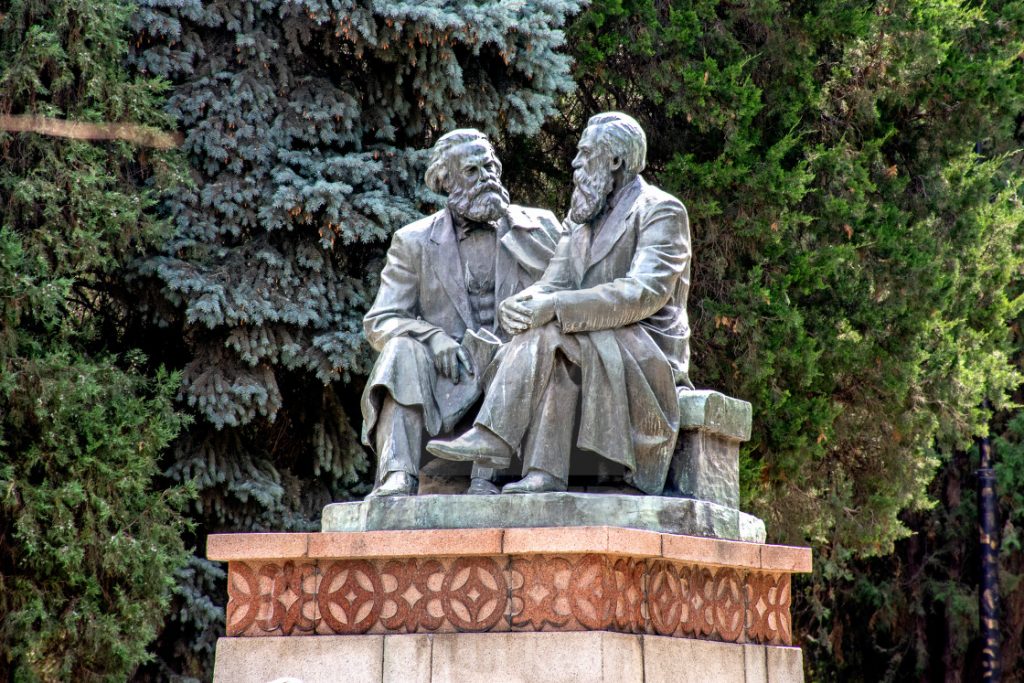Tom Bird examines Marxism’s theoretical roots and its application in the contemporary world
The modern world is a chaotic place. With the dawn of social media, the bombardment of current events including (but not limited to) the pandemic, the worsening climate crisis, growing poverty, racism, and increased political polarisation has been seemingly endless and certainly overwhelming to a lot of us. The internet has given us access to more information than ever before, yet most of us feel isolated and still struggle to form a concrete and consistent worldview that allows us to make sense of everything unfolding around us. A lot of us feel exhausted trying to process the magnitude of everything going on while simultaneously feeling more powerless to do anything that makes a difference, and for many, gaining knowledge of the world has begun to feel like a burden that only leads to further anxieties, as opposed to a tool that can be utilised to create a better future.
These newfound anxieties can have varying effects on people, ranging from outright withdrawal and ‘doomer’ apathy, to others flocking to far-right ideology and conspiracy theories in an attempt to regain a sense of belonging, purpose, and control. Even for a Marxist, capitalism can feel like an unstoppable force which sucks away our political agency. But where do we go from here? To move forward we must start by looking at the forces that drive change in the world, and I believe Marxism has something to offer those of us looking to understand and make a difference.
When most people hear the term ‘Marxism’, there are a few things that might pop into their heads. It may be past or present socialist experiments such as those in the Soviet Union, Cuba, China or North Korea. It may be historical figures associated with Marxism, such as Karl Marx, Friedrich Engels, Vladimir Lenin, Mao Zedong, or Josef Stalin. While these are all certainly related to Marxism, they don’t really tell us much about what Marxism is fundamentally. So what is it exactly? In short, Marxism is a lens in which to view the world around us that puts a particular emphasis on history, the economy, and how they affect human relationships. It acts as a sort of magnifying glass that can be used to demystify why our societies function the way they do, and as a scientific tool to help us navigate and create change. So what is this tool, and why is Marxism still relevant to our situation today? To start with, we should talk a little bit about Marxism’s history and its core principles.

Marxism – A Breakdown
Marxism was formulated by Karl Marx and Freidrich Engels in the mid-1800s. During their time, capitalism was just getting going, with the the industrial revolution kicking off around the same time in Britain (where they were both based after having to flee their native Germany). Marx and Engels read the works of famous liberal economists (such as Adam Smith and David Riccardo) and found their work to be very useful, as they had already documented some of the laws of early capitalist production. However, Marx and Engels felt that the laws created by these earlier economists were too basic, as capitalism was rapidly developing and expanding, and they wanted to fully understand the laws that drive capitalism and how they impact the vast majority of people. To do this, Marx and Engels took inspiration from previous philosophers and economists to create a method of scientifically analysing capitalism, human society, and history.

When conducting their analysis, they found that capitalism was capable of creating vast wealth very quickly. But that wealth was not shared with the masses of people who created it. In fact, most ordinary people were left poor and impoverished. These are similar conclusions that earlier thinkers such as Robert Owen and Charles Fourier arrived at. These thinkers have since been called ‘Utopian Socialists’, as they tried to bring about a better world through appeals to reason and logic alone. Unfortunately, a lot of these attempts at making a better society failed (such as Robert Owen’s community in New Harmony, Indiana, as well as early socialist revolutions such as the Paris Commune). To understand why, with the intention of making future improvements more successful, Marx and Engels started analysing the material conditions of the world around them, such as how goods and services are produced, where raw materials are coming from, how goods and services are distributed, who does the work, who benefits from the buying and selling of goods etc… This meant that they created their theories of capitalism and history by observing the material world and creating a plan to move society forward based on their observations, as opposed to trying to create a perfect society through logic, reason and thought alone like the Utopian Socialists. This method may already be familiar to you as an application of the scientific method used by everyone from Charles Darwin to Albert Einstein, just instead being applied to human history and economics. Marx and Engels went on to call this method ‘Historical Materialism’ (as they looked at history by observing and measuring the material forces of production at play) and ‘Scientific Socialism’ (in opposition to the Utopian Socialism that came before them).
As simple as this method of observing the material world for answers seems, this was a major breakthrough in Marx and Engels’ time, especially for many people looking to make change in their society. To Marxists, using a materialist method of understanding the world has superior explanatory power and provides a much more concrete picture of the world as it really is compared to other political ideologies or philosophies in the mainstream. This still holds true for us today, and Marxism remains an invaluable tool to make sense of what’s happening around us. What implications does this have for us in 2021?
Where We Are
While the material conditions of our current world are radically different to those in Marx’s own time, the methodology of Marxism is, like all scientific methods, still applicable and extremely useful. In fact, many of Marx’s observations about capitalism and its future are as true today as they were 150 years ago. While Marx and Engels recognised capitalism as something that was once a progressive force in human history, providing us with rapid wealth creation and a huge advancement in productive capacity, they also saw that as it progresses it also runs into problems. For example, Marx and Engels observed that capitalism is increasingly unstable and dives into crisis every ten years or so as a result of its internal forces collapsing, creating misery, unemployment, poverty, homelessness, and hardship for the vast majority of people, while banks and other large companies get billions in bailouts from public funds. We saw this very clearly in 2008 financial crisis and most recently in the last year during the COVID crisis as capitalism struggles to cope with the weight of the pandemic. Profits for the world’s wealthiest people have continued to grow seemingly exponentially. The world’s billionaires increased their wealth by $10.2 trillion between March and November 2020 during the first wave of the pandemic, while most people have struggled with isolation and economic loss. Most of the major political organisations in Britain make vague commitments to ideological principles such as ‘freedom’ or ‘equality of opportunity’ without any serious analysis of current material conditions, meaning their strategies are fruitless at best and subverting blame of capitalism’s shortfalls for profit at worst.
By sweeping away old ideologies and looking at the actual root causes of the complex issues we face, we can begin to see that they too are not as separate as we’ve been taught. Capitalism is a system that requires endless growth and expansion year on year on an increasingly finite and fragile planet, otherwise it falls into deep crisis. The world’s largest 100 corporations have been responsible for 71% of all carbon emissions since 1988, the prison-industrial complex makes large profits for private security contractors to keep mainly poor BAME people incarcerated for petty crimes, and the system of free markets has put the wealth of a few wealthy people above the health and well-being of millions during the COVID-19 crisis. This is still doesn’t include the history of colonialism and capitalist imperialism which has kept large portions of the global south in bondage to poor working conditions and resource extraction, all for the profit of a few wealthy and powerful countries. A lot of these issues have their roots in capitalism and the social systems it creates, and this isn’t a poor application of a rational system either as capitalism’s laws of endless expansion make this an inevitability. It’s baked into its very nature.

However, Marxism isn’t as pessimistic as it initially seems. While its conclusions about capitalism are undoubtedly gloomy and depressing, it gives us an honest assessment of where we are, the impacts of our economic system, and a blueprint of how to make real, material changes. By looking at human history and societal development through a materialist lens, Marxism helps us understand capitalism not as an eternal and static system, but as a stage of human development coming out of previous economic systems of the past (such as feudalism) and something we can move beyond. The reality is that capitalism has only existed for the past 300 years or so. In light of this and after studying social groups around the world, Marx and Engels concluded that human behaviour itself isn’t static, unchanging, or eternal, and our values, thoughts, societal structures and consciousnesses are significantly influenced by the historical context, material environment, and economic system we exist in. The environment we’re brought up in highly structures our consciousness, and that consciousness is then applied by humans back into our environment in the form of labour, creating a back and forth relationship between the two. Human behaviour is highly adaptable and susceptible to change, which we can clearly see in the vast differences between cultures and ways of life worldwide. Engels in particular did research into the natural world and concluded that humans as a species aren’t isolated, selfish beings like we so often think today. We’re not separate from the natural world or each other, we’re actually products of and integral parts of the earth and universe that surrounds us. We’re not something external and alien placed on the earth, we’ve bubbled up from it. In fact, we have a profoundly deep and mutually impactful relationship with nature, just as Darwin and countless others have observed. We’ve only achieved so much as a species because of our ability to cooperate with each other, and the instinct to better ourselves and work as a social species is deeply ingrained in our biology. To change things for the better, we should utilise the Marxist method to properly analyse the conditions of our time, and use its methodology to plan a path to a more prosperous future for us all.
A Personal Perspective and Conclusion
Now we’ve discussed Marxism’s applications in a broad sense, one thing I’d like to discuss is how Marxism has affected not just how I view other people and their social relations, but how I view myself in connection to others. Having a deeper understanding of the world puts into perspective that everyone is part of something much grander and broader, and nobody (including yourself) is truly detached from anybody or anything else. Everything in the universe has an eventual and overlapping impact with everything else, and it’s impossible to exist outside it. Marxism also feeds our curiosity and gives us the tools to explain the world in the most objective way possible, and one of the best ways to apply that in our day-to-day lives is by building meaningful relationships with others without the ideological fog of our current system. It’s caused me to realise that we’re not as detached and selfish towards each other as those in power would like us to think. It’s very humbling, and that plays out in how I relate to and empathise with other people, but at the same time it’s empowering and profound. It’s brought me to this conclusion: A better world is certainly possible, and it’s something we all deserve.
More Resources/Further Reading
- Socialism 101 – A basic introduction to and FAQ on socialism.
- “Why Socialism?” by Albert Einstein – A short text introducing socialism penned by Einstein himself.
- “Making the case for a Planned Economy” – A video by socialist YouTuber AzureScapegoat.
- https://www.marxists.org/ – An extensive and free online database of socialist texts.
- The Young Communist League’s “Back2Basics” series going into more depth on Marxist and Marxist-Leninist theory.
- “Basic introduction to Dialectical Materialism” by Vietnamese YouTuber Luna Oi.
Tom Bird, is a member of the YCL’s East Midlands branch



